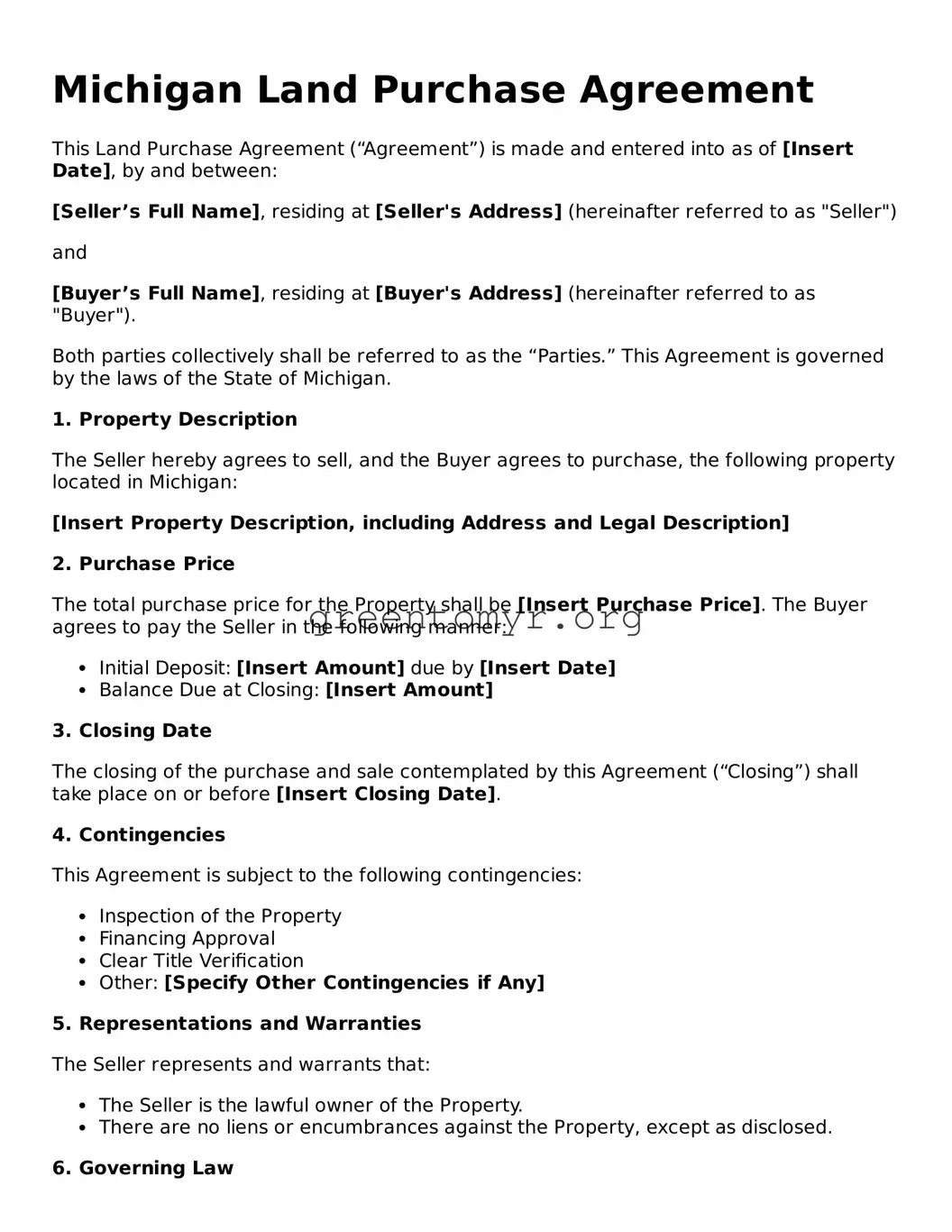Michigan Land Purchase Agreement
This Land Purchase Agreement (“Agreement”) is made and entered into as of [Insert Date], by and between:
[Seller’s Full Name], residing at [Seller's Address] (hereinafter referred to as "Seller")
and
[Buyer’s Full Name], residing at [Buyer's Address] (hereinafter referred to as "Buyer").
Both parties collectively shall be referred to as the “Parties.” This Agreement is governed by the laws of the State of Michigan.
1. Property Description
The Seller hereby agrees to sell, and the Buyer agrees to purchase, the following property located in Michigan:
[Insert Property Description, including Address and Legal Description]
2. Purchase Price
The total purchase price for the Property shall be [Insert Purchase Price]. The Buyer agrees to pay the Seller in the following manner:
- Initial Deposit: [Insert Amount] due by [Insert Date]
- Balance Due at Closing: [Insert Amount]
3. Closing Date
The closing of the purchase and sale contemplated by this Agreement (“Closing”) shall take place on or before [Insert Closing Date].
4. Contingencies
This Agreement is subject to the following contingencies:
- Inspection of the Property
- Financing Approval
- Clear Title Verification
- Other: [Specify Other Contingencies if Any]
5. Representations and Warranties
The Seller represents and warrants that:
- The Seller is the lawful owner of the Property.
- There are no liens or encumbrances against the Property, except as disclosed.
6. Governing Law
This Agreement shall be governed by and construed in accordance with the laws of the State of Michigan.
7. Signatures
IN WITNESS WHEREOF, the Parties hereto have executed this Land Purchase Agreement as of the date first above written.
_____________________________
Seller’s Signature
[Seller's Printed Name]
_____________________________
Buyer’s Signature
[Buyer's Printed Name]
This template is for informational purposes only and should be modified with the assistance of a qualified attorney to ensure compliance with all applicable laws.
